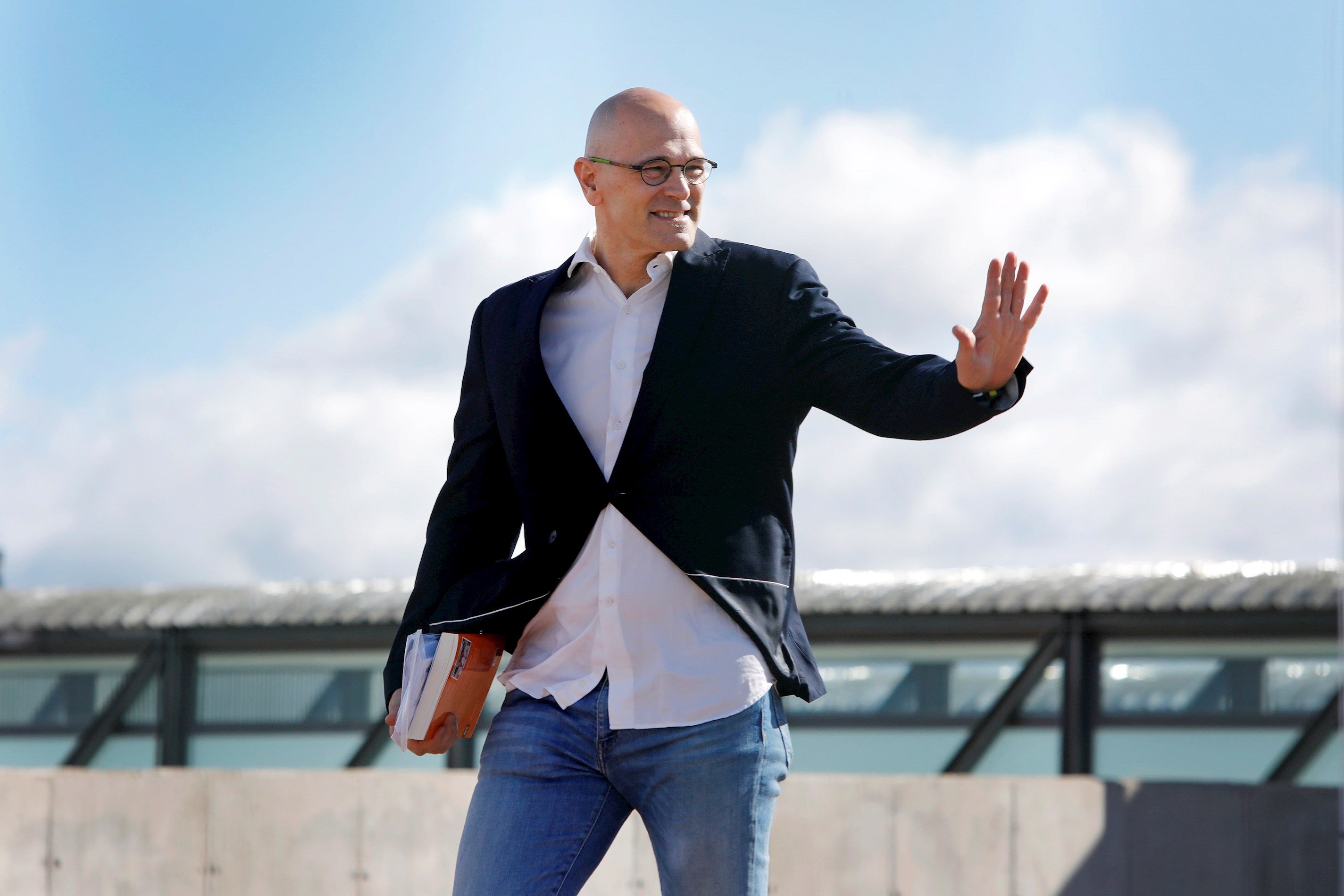The Spanish public prosecutor's office appears to be unaffected by the backlash received only 24 hours ago by Barcelona's Court of Supervision number 5 since it persists in its crusade against leaves for Catalan pro-independence prisoners. Now with an appeal against the application of Article 100.2 to Raül Romeva. Among other arguments, prosecutors state what they have been repeating with the rest of Catalan political prisoners: that he has not "re-educated himself" nor "assumed the criminal nature of his conduct". They stand for "a restrictive interpretation" of the article.
In the case of former Catalan minister of foreign affairs Raül Romeva, they include personalised reasoning. Specifically, that in the work assigned outside the prison, "one of the tasks he will have to do", which is to "organise all the cooperation activities between Catalonia and Bosnia", bears "a certain similarity to the activity he carried out as minister".
In its brief, the public prosecutor's office points out that Romeva presents "a danger of relapse" and defends that granting him leave to work "will not have a positive influence" on the inmate. It also points out that the fact that he has higher education and a long professional career means that once he has served his sentence he will have no problem finding an occupation, so the prosecutors think that it is not necessary for him to gradually return to the labour market, because he is a person "fully integrated into society".
Finally, the appeal again refers to the "seriousness of the sentence" imposed. In Romeva's case, 12 years in prison. From the point of view of the public prosecutor's office, "when it comes to serious crimes, the penalty must be identified by society and by the affected person as an effective sanction, in order to maintain confidence in the rule of law".
For weeks now, the public prosecutor's office has been fighting the assessment boards of the prisons of Lledoners, Puig de les Basses and Mas d'Enric, opposing each and every one of the leaves that have started to be granted to pro-independence prisoners so that they work and volunteer out of the prison in application of article 100.2 of the prison regulations. On Thursday, the surveillance court dismissed the first appeal by the prosecutors, that of Jordi Cuixart, who was the first to leave prison to work. The resolution is not yet final - the Barcelona Court will have the last word - but it is a backlash for the public prosecutor's office.
Although the resolution is specific to the case of Cuixart, the truth is that it sets a precedent in relation to the rest of the condemned by the October 1st referendum who are already granted Article 100.2 -Junqueras, Romeva, Sànchez, Forcadell, Forn and Bassa.

